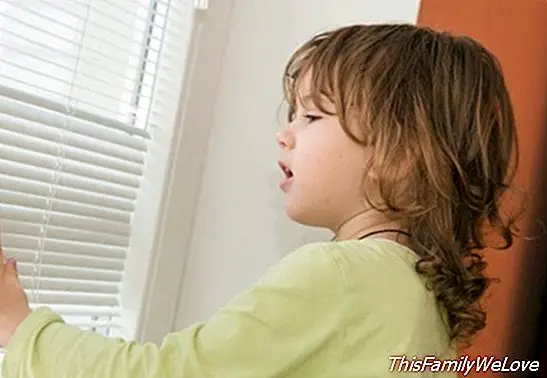What happens if they are left alone at home

Almost 10 percent of children under the age of 12 have been Left alone at home at some point, which increases their risk of suffering an accident in the home, being the falls and blows the most frequent, according to a study carried out by the Spanish Association of Primary Care Pediatrics (AEPap) and the Mapfre Foundation.
The work has been carried out from 1,726 questionnaires to families of children who had suffered an accident in the last year and the coordinator of the study, Guadalupe del Castillo, has been "scandalized" with this result, since she considers that the problem of the "key children" is "a social risk factor" that must be "reported or communicated to the social worker".
Especially since, although being alone at home is generally more frequent after 8 years (16% of respondents in this age group), up to 6.3% of children from 5 to 7 years have been alone in house on occasion and up to 3.2% of children under two years.
Pediatricians believe that from the age of 12 the minors can start to stay alone in certain cases, although it depends on other factors, and the age at which there is more risk of something happening in case of being left alone is between 2 and 8 years.
In general terms, the survey shows how Children suffer an average of two accidents per year, about 400,000 in Spain according to the data of the National Institute of Statistics (INE), of which 150 end up being mortal. Of these, almost the majority are traffic accidents (about 60) or drowning or choking (about 40).
Falls or blows, the most frequent
Most of the accidents occur in the child's environment (57%), mainly in the school or in the park, followed by the home, where they occur in 42 percent of cases, and the most frequent are the falls (56%) or hits against an object, person or animal (26%).
However, the type of accident varies according to age since, while they are smaller (less than 4 years old), they are more frequent. Drowning, the falls or the crushing, between 5 and 7 years the most frequent reason is a bite and after 8 years old they are the cuts, blows or those caused by a foreign body.
Of these, 7 out of 10 needed medical attention, up to 35% had to go to the hospital and 4% needed hospital admission.
The most frequent causes of childhood accidents
As for the reasons why the relatives believe that the accident occurred, 46% believe that it was due to the chance or chance, 21% for imprudence or recklessness of the child and only 14% for a neglect or distraction of the caregiver.
The president of AEPap has ensured that Most accidents are preventable. And although it is clear that parents can not be blamed, they and the caregivers must be aware that they have to take measures to prevent them from occurring.
Proof of this is that those families who take preventive measures In the home, such as leaving medicines and cleaning products out of the reach of children, they have less risk of children suffering an accident.
In addition, the pediatrician appeals to the child's education "from birth". "Since they are born we must be teaching them and giving them an example, because children are restless and curious by nature, but it is also true that they learn by imitation and you have to make them see what is dangerous and what is not. "
Marina Berrio




